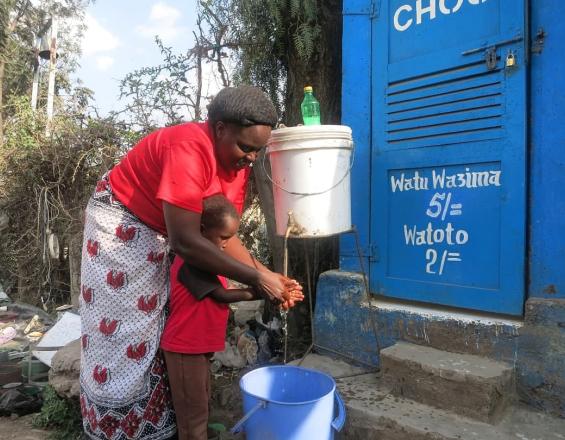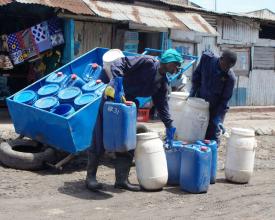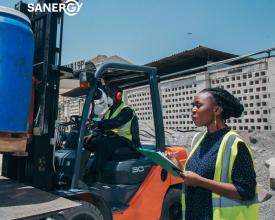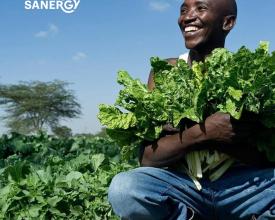
Sanergy - le défi de l'assainissement urbain

Dans les bidonvilles des grandes villes du Kenya, les toilettes intérieures et les possibilités d'assainissement sont souvent rares. Dans les villes qui se développent rapidement, le nombre de personnes vivant dans des logements inadéquats et ayant un accès limité aux services de base devrait doubler d'ici 2030 pour atteindre deux milliards. Le manque d'infrastructures d'assainissement est préjudiciable à la santé et au bien-être des personnes et a un impact négatif sur le milieu naturel environnant. Les déchets ménagers et organiques finissent souvent dans les écosystèmes locaux et les rivières. Les villes qui tentent de résoudre ce problème ont souvent du mal à faire face aux coûts élevés de la construction de services d'assainissement. Pour faire face à ces coûts élevés, Sanergy a mis en place un réseau de toilettes à bas prix qui collecte et convertit les déchets organiques en engrais et en nourriture pour animaux à base d'insectes. Ce système circulaire offre une alternative d'assainissement abordable et efficace aux zones d'habitat informel d'Afrique. Sanergy a établi des partenariats avec Nairobi, Kisumi et d'autres villes dans le but de fournir des services d'assainissement à 1,3 million de citoyens kenyans.
Impacts
Depuis 2011, les toilettes installées à Nairobi ont été utilisées plus de 126 690 fois par jour et ont permis de collecter et de traiter 43 473 tonnes de déchets par an. Ce projet offre une solution circulaire pour la gestion des déchets au Kenya tout en protégeant les cours d'eau urbains et en évitant la mise en décharge. L'approche "construire - collecter - convertir" montre que la crise de l'assainissement peut être résolue de manière durable.
Pour le confort et la commodité des utilisateurs, les cabines de toilettes comprennent une station de lavage des mains avec du savon, de l'eau et une poubelle pour l'hygiène féminine. Les toilettes sont équipées de cartouches individuelles de stockage des déchets qui séparent les déchets solides et liquides. Les déchets sont enlevés par des camions et de petites charrettes à bras pour permettre l'accès aux routes étroites et non pavées des bidonvilles urbains profonds. Les déchets collectés constituent un engrais fiable, abordable et durable pour les agriculteurs kenyans, afin d'améliorer la santé des sols et le rendement des cultures.
En outre, le projet établit un modèle commercial durable pour les habitants. Les cabines sont construites avec des matériaux locaux et par des travailleurs locaux, souvent des habitants de bidonvilles. Les toilettes Fresh Life sont franchisées à des habitants qui les gèrent comme des entreprises viables (en facturant aux clients environ 0,05 USD par utilisation). Les "opérateurs Fresh Life" reçoivent une formation à la gestion d'entreprise et à l'exploitation. Le programme Fresh Life a déjà créé environ 300 emplois durables.





